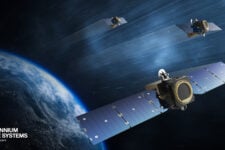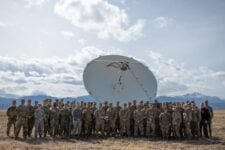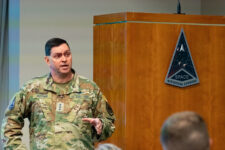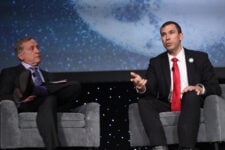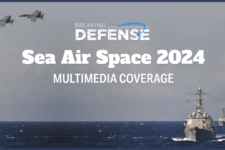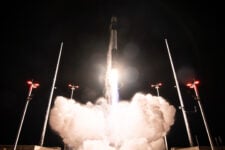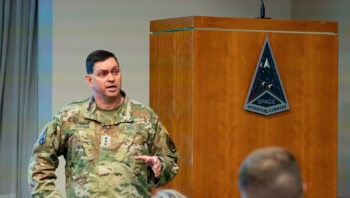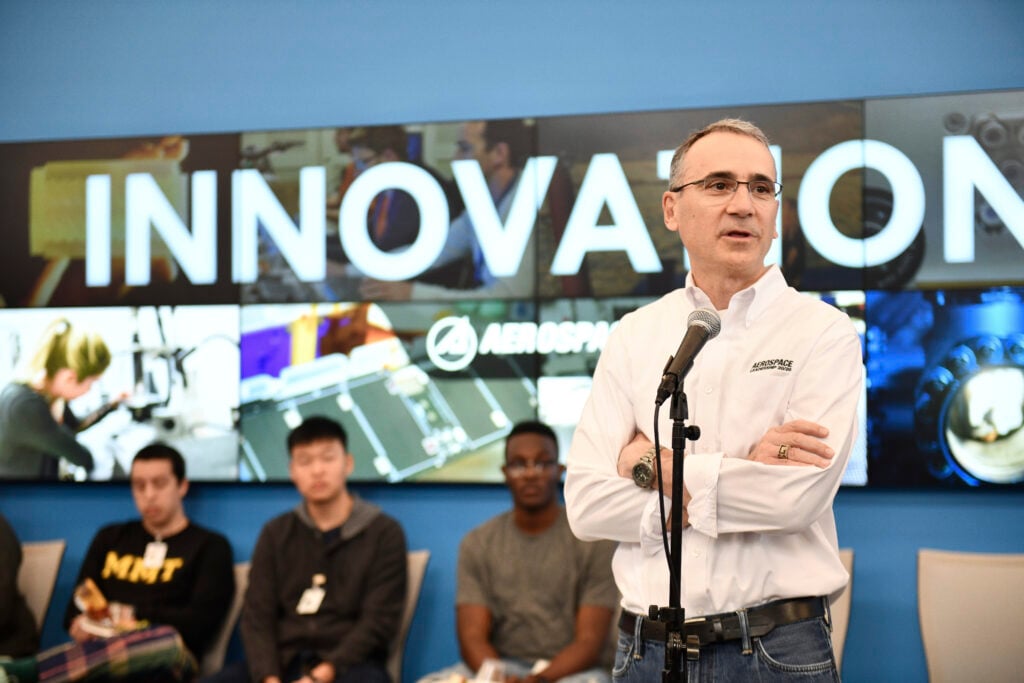
Steve Isakowitz, President Aerospace Corporation
WASHINGTON: Aerospace Corporation President Steve Isakowitz says he never has a free Friday afternoon, but it doesn’t sound like something he’s in a hurry to change — unless perhaps the NFL’s Sunday afternoon season openers move to a new day. He’s a big sports buff, who says his staff roll their eyes at his constant use of sports metaphors.
His lack of free time probably isn’t surprising. In addition to long-standing work with the Air Force, Aerospace has become the go-to advisor for the Pentagon’s space leaders — with its fingers in everything from policy questions for the Center for Space Policy and Strategy, to designing new micro-thrusters for teeny Cubesats. The federally funded research and development center (FFRDC), with its headquarters in El Segundo, has always had a role in helping DoD with thorny technology problems, but during the six years Isakowitz has been there it seems to be busier, and even more plugged in, than ever.
Isakowitz took some time from one of his busy Friday afternoons to talk with Breaking Defense’s Air and Space Reporter, Theresa Hitchens, prior this week’s annual Space Foundation Space Symposium.
So, why did you come to Aerospace? What attracted you?
Before I came here I was at a startup, which was a really fun place to be. Certainly there’s a lot happening in the space industry that really makes the whole startup and emerging space industry very exciting. But one of the things I had observed was, space is really going through a transformational time. And I think what makes it most interesting [is that] in my lifetime, I have never seen it like it is now, where it’s changing in all three sectors — meaning national security, civil and commercial — all at the same time. And it’s happening in a way that allows us to really, almost like, redesign what we’re doing, in each one of the sectors. So, with that as the background, I saw Aerospace as, like, the perfect place to come work because I feel that Aerospace, as an FFRDC, gets to work at the intersection of all three of those activities.
Aerospace is a pretty sprawling place — doing everything from advising policy-makers to engineering to actually building smallsats. How do you see those disparate activities interacting and balancing?
I think it’s really powerful having an organization that has the visibility from the front end, all the way to the actual delivery of it. The front end being everything from the policy, the regulations, how the requirements are set, to be able to come up with that formulation of what the architecture is going to be, not just an individual satellite, but how do all these things work together, to what kind of launch policies do we need to have to encourage the marketplace to move forward? And how do we know it’s keeping the cutting edge of technology?
And then … at the end you’ve got to build things that work. Space is still a tough business. … It’s not good enough just to put cool things in space. If it’s not getting to the warfighter or it’s not getting to the decision-maker, it’s not really that useful.
Tell me what you do everyday.
The question I always most dread is the one where people say, so what does an average day look like?
There’s not an average day. … For me, and it’s what I enjoy. We live in highly uncertain times, so we’ve got to be really nimble. …
I spend a lot of time on the phone with our customers, working through individual problems or just making sure we’re on the right course. And particularly, one of the challenges you often get in the government is the people at the head of an organization could say they want to go in a certain direction, but it doesn’t mean that the entire organization is going in that direction.
You’ve talked about how things have changed and are changing in space, but sometimes — especially with military space — it seems like we are still having the same old arguments we did 20 years ago. How do you feel about that?
The fun thing about being a startup is you get to go to a whiteboard, and you come up with a whole new thing and say: “This is what we’re going to do, and hopefully it’ll work.” The challenge of the government is it doesn’t have that discretion … because we can’t tell the president, “Oh, our missile warning system went down today because we were trying out a new technology.” That just can’t happen. So the real balance is “how do you take advantage of the change that’s taking place, while making sure that you have a cogent ability to transfer it?” That is always the tension in the system.
I think what is changing it though is … everybody realizes the technologies and the changes we’re seeing today are much more transformative than we’ve ever seen. … The challenge is: how do you take full advantage of that? It’s not just that it is a cool thing to do; what we’re seeing is a need to outpace the threat. I mean, look what just happened [earlier this year]: the Chinese landed on Mars. That’s a pretty big deal.
Are you surprised about the level of concern the Chinese civil space program seems to be prompting? I mean, the US just flew a helicopter on Mars, which was pretty cool.
There’s part of me personally that I think: Great! I’d like to see planet Earth being able to do more things around other planets, whether it’s Japan or China. I think that’s all really exciting. … it’s good for everybody. But it also demonstrates a level of technological maturity that tells us that the lead that we once had can no longer be taken for granted.
If you could change one thing in space policy right now, what would it be?
I can’t just add money, I guess?
No.
It’s probably in the way that we set requirements. I think we tie ourselves in knots at the front of the programs, because we don’t have that many that come through — at least that’s the thinking — and so people keep putting on their favorite little requirement. And they also not only want to put it on it; they want to design it for you, so by the time the program manager is told to go, these things are sort of locked in stone. … I would prefer a requirements environment that is much more flexible and gives much more delegation and authority for managers.
So are you a geek? Do you read sci-fi?
I am a geek, but I don’t read sci fi. I did as a kid. … When you get a become a CEO, you start reading management books and so on.
Oh, I’m so sorry, that sounds painful. But I have to ask: Star Wars or Star Trek?
If I had to pick one, it would probably be Star Wars. Although you didn’t ask me, but if you had, it’s 2001 Space Odyssey. As a kid, it really inspired me.

